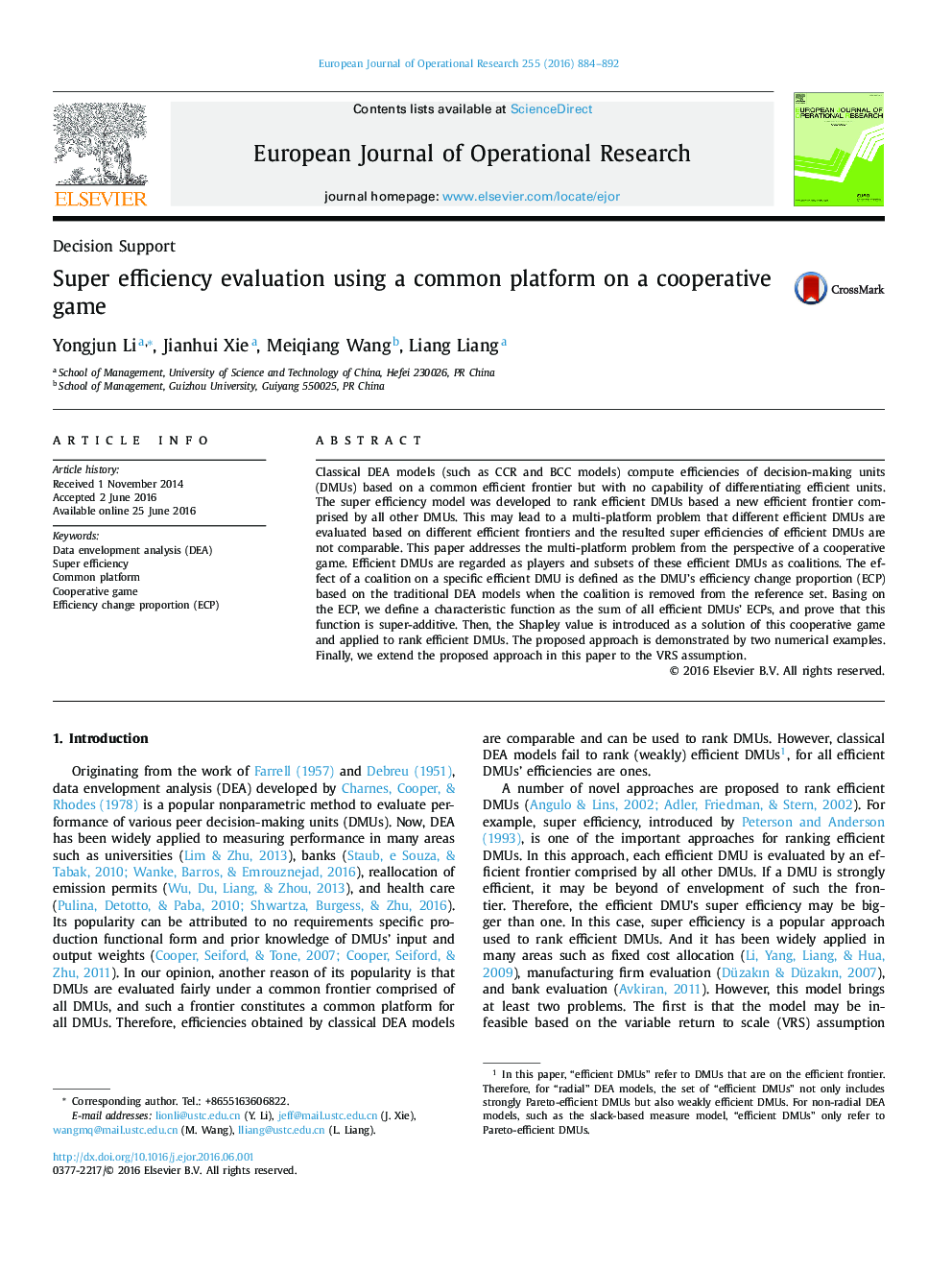| Article ID | Journal | Published Year | Pages | File Type |
|---|---|---|---|---|
| 4959820 | European Journal of Operational Research | 2016 | 9 Pages |
Abstract
Classical DEA models (such as CCR and BCC models) compute efficiencies of decision-making units (DMUs) based on a common efficient frontier but with no capability of differentiating efficient units. The super efficiency model was developed to rank efficient DMUs based a new efficient frontier comprised by all other DMUs. This may lead to a multi-platform problem that different efficient DMUs are evaluated based on different efficient frontiers and the resulted super efficiencies of efficient DMUs are not comparable. This paper addresses the multi-platform problem from the perspective of a cooperative game. Efficient DMUs are regarded as players and subsets of these efficient DMUs as coalitions. The effect of a coalition on a specific efficient DMU is defined as the DMU's efficiency change proportion (ECP) based on the traditional DEA models when the coalition is removed from the reference set. Basing on the ECP, we define a characteristic function as the sum of all efficient DMUs' ECPs, and prove that this function is super-additive. Then, the Shapley value is introduced as a solution of this cooperative game and applied to rank efficient DMUs. The proposed approach is demonstrated by two numerical examples. Finally, we extend the proposed approach in this paper to the VRS assumption.
Related Topics
Physical Sciences and Engineering
Computer Science
Computer Science (General)
Authors
Li Yongjun, Xie Jianhui, Wang Meiqiang, Liang Liang,
